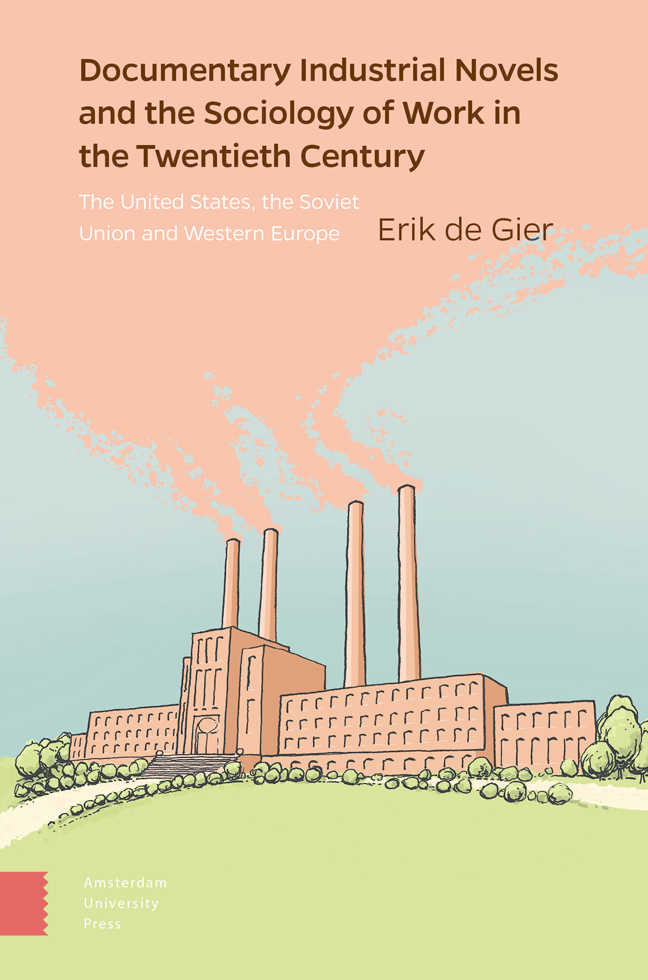 Documentary Industrial Novels and the Sociology of Work in the Twentieth Century
Documentary Industrial Novels and the Sociology of Work in the Twentieth Century Book contents
- Frontmatter
- Contents
- Acknowledgements
- Preface
- Note on sources
- 1 Bringing together the fields of sociology and literature: Towards an integration of Modernist industrial novels into industrial sociology
- 2 The rise of welfare work capitalism and the Americanization of production processes in the United States, Western Europe, and the Soviet Union
- 3 Between ‘utopia’ and ‘dystopia’: American 20th-century industrial novels
- 4 Socialist-realist industrial novels in the Leninist and Stalinist Soviet Union in the 1920s and 1930s
- 5 New Objectivity industrial novels in Weimar Germany
- 6 Neo-realist industrial novels in post-war Italy: The Olivetti case
- 7 Simone Weil and Modernist industrial novels in France
- 8 Transnational comparison and concluding reflection
- Bibliography
- Index
6 - Neo-realist industrial novels in post-war Italy: The Olivetti case
Published online by Cambridge University Press: 20 February 2024
- Frontmatter
- Contents
- Acknowledgements
- Preface
- Note on sources
- 1 Bringing together the fields of sociology and literature: Towards an integration of Modernist industrial novels into industrial sociology
- 2 The rise of welfare work capitalism and the Americanization of production processes in the United States, Western Europe, and the Soviet Union
- 3 Between ‘utopia’ and ‘dystopia’: American 20th-century industrial novels
- 4 Socialist-realist industrial novels in the Leninist and Stalinist Soviet Union in the 1920s and 1930s
- 5 New Objectivity industrial novels in Weimar Germany
- 6 Neo-realist industrial novels in post-war Italy: The Olivetti case
- 7 Simone Weil and Modernist industrial novels in France
- 8 Transnational comparison and concluding reflection
- Bibliography
- Index
Summary
Abstract
This chapter deals with the remarkable number of neo-realist industrial novels written during the post-war economic boom in Italy. This period was characterized by a wide-ranging second industrial revolution in the country. Italian industry introduced modern American production techniques on a larger scale than before the war. As a consequence, worker alienation became a prominent issue. This was aggravated by the rapid transition of the large traditionally agrarian workforce into a modern industrial proletariat adapted to efficiency-based industrial circumstances. The focus is on the emblematic Olivetti typewriter and calculator company and its idealistic owner Adriano Olivetti, who intentionally employed two renowned professional writers, Ottiero Ottieri and Paolo Volponi. Both authors published significant industrial novels on the Olivetti company and its workers.
Keywords: Olivetti, communitarism, neo-realist industrial novels, Taylorism, Fordism, worker alienation
Introduction
Italy underwent a remarkable economic boom in the 1950s and the beginning of the 1960s marked by a forceful industrialization (Ginsborg, 1989, 283–343). Italians themselves speak of a ‘second industrial revolution’ after the first one between the end of the 19th century and the onset of the Great Depression in the 1930s. In a quick pace and relatively short time the country made a transition from a still mainly agricultural nation towards one of the most important industrial economies of the world of that time. This transition required the recruiting of many new industrial workers from the ranks of agricultural workers and artisans in a rather brief timespan. This caused large migrant streams from the south of Italy to the north, as well as a rapid urbanization of the north. The majority of important industrial enterprises such as Fiat, Pirelli, and Olivetti were concentrated in the so-called industrial triangle between Milan, Turin, and Genoa. Another relevant factor in this context was the broadly supported will in the country to overcome the political and moral deficit of the Fascist regime of Mussolini (1922–1943). This, among other things, motivated a limited number of enlightened and reformist entrepreneurs to experiment with modern American production techniques, industrial democracy and extensive social policies inside their companies. One of the most remarkable reformist entrepreneurs in this respect was Adriano Olivetti, the owner of the eponymous typewriter and office machinery company, first in its main factory at Ivrea near Milan, and then also in the new factory in Pozzuoli near Naples.
- Type
- Chapter
- Information
- Documentary Industrial Novels and the Sociology of Work in the Twentieth CenturyThe United States, the Soviet Union and Western Europe, pp. 111 - 140Publisher: Amsterdam University PressPrint publication year: 2023
